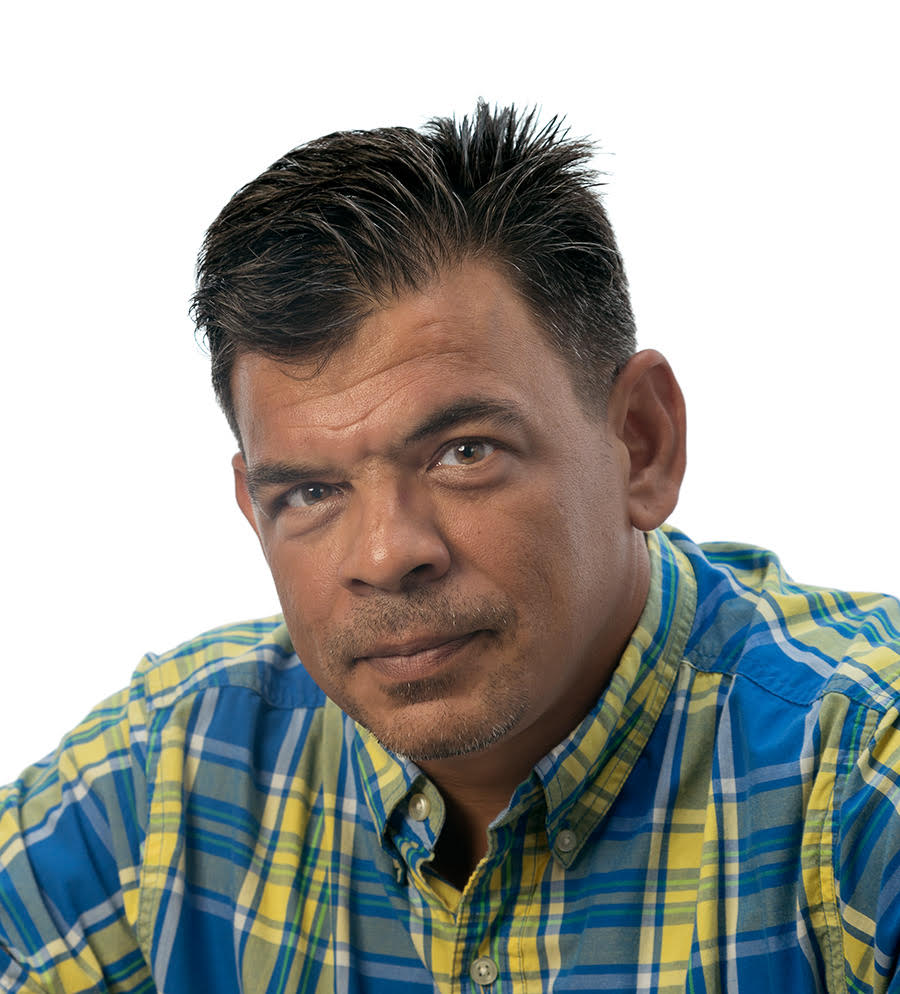 I have been observing fairly quietly the way things are going in Trinidad and Tobago, and it’s hard to say that things are going well by any stretch. Even Global Voices has picked up on the disconnect between politicians and the people that they allegedly serve, and even after that politicians continued speaking in quite condescending ways to the public.
I have been observing fairly quietly the way things are going in Trinidad and Tobago, and it’s hard to say that things are going well by any stretch. Even Global Voices has picked up on the disconnect between politicians and the people that they allegedly serve, and even after that politicians continued speaking in quite condescending ways to the public.
In grand Trinidad and Tobago picong, the Trinidad and Tobago Express was happy to point out that coal pot sales are still slow.
The Chinese have a proverb: When you find yourself in a hole, stop digging.
Clearly those accused of leadership in the country are still digging – perhaps digging up the nation’s roads so that citizens can repair their own roads. I am not immune to a little picong myself.
Then there’s the ongoing crime issue, where the Minister of National Security Minister downplayed a shooting ‘200m from a school’ when videos were going around Whatsapp of children hiding under desks and scared – without seeming to understand that a 9mm round can go up to 3 miles, and as if a shooting even 200 meters from a school is acceptable. For those of you uncertain, it is not acceptable and should not be considered acceptable. It’s not as if schools have a special zone around them where people who are going to shoot at each other agree not to shoot. The fact that they are shooting at each other in the first place might be a hint, though I am probably not as qualified as a Minister of National Security on such things.
For years, I have sat and watched even as a $500 million dollar overpass is being built when either side of it consistently floods with heavy rains, even as another project in South Trinidad had a road collapse earlier this year – a road I once traveled daily.
People quietly talk about how Trinidad and Tobago got where it is. I have been watching, observing, not writing about each and every thing because to do that would be a full time job for groups of journalists. In this regard, I imagine that there’s steady employment – slews of editorials trying to connect the dots, with everyone trying to come up with people to blame, political sides to blame, and even broad brush attempts to come up with silver bullets for every mythical creature out there that could be to blame.
In speaking with friends, there is this shared thought that something must be done, that something needs to change. That has always been there, but there is a sense of urgency now that has inspired me to write this.
Apolitical
Two party political systems have a tendency to devolve into power sharing, where either side of the coin blames the other side, continuing to spin the coin that powers what is best termed as bacchanal. I generally don’t write about these things because it’s easy to get labeled in the popular ad hominem defenses that someone has a political side simply by one thing being written. In Trinidad and Tobago, we have the People’s National Movement (PNM) and the United National Congress (UNC) with very little in between – two parties that have swapped power, the UNC once under the guise of a coalition that it didn’t seem too interested in.
I know people in both parties. I know people who support either party, and generally surround myself with those that are more interested in the issues than the political soap opera of the elite.
The reality is not the politics, but the politics parades as reality for many. This is not political fodder. This is about reality.
The State Company Issue
When Caroni 1975 Ltd, the state owned sugar company, was closed, it was because it was not profitable. A mixture of incompetence of management and corruption. When Petrotrin was closed down, it was seen to be the same thing regardless of how it was described. There were no attempts to fix these issues.
We see it in the plethora of State owned Corporations. T&TEC, the national supplier of electricity, dealt with outages all over it’s network, but the most memorable one was a single tree falling causing an outage throughout Trinidad. WASA, the nation’s water and sewage company, has been plagued by lack of profitability, failing infrastructure that even recently left people without water, and has a plant down still, as far as I know, because of turbid water conditions on a river– something worthy of question on an island with a wet and dry season.
Crime has regained prominence as shootings continue, debates over legal firearms continue, and yet Trinidad and Tobago’s landed Defence Force seems to be more prominent than the Coast Guard. On a dual island nation one would expect the borders to be less permeable for guns and drugs through the efforts of a Coast Guard, yet the Defence Force seems to be the answer that both political parties have reached for every time.
Then there are the plethora of regional corporations and other state entities that one needs a special dictionary for to translate the acronyms into who is responsible for what.
It seems oddly appropriate that the only police escorts are for Members of Parliament and prisoners on the way to Court.
“How did it become this way?”, people ask, though sounding much more local with seasoned adjectives. Everyone seems to have something to say on that.
I do too.
How It Got This Way.
It can be boiled down to three things: Nepotism, corruption, and lack of diversification of the economy. Where corruption is suspected and is not present, transparency is the issue. The lack of economic diversification deserves it’s own section.
Nepotism sometimes lends itself to incompetence, sometimes to corruption, sometimes both. This has gone on for decades, and much like Putin’s equipment that failed in Ukraine, and continues to fail, the infrastructure of Trinidad and Tobago fails with a little rain. We could bring climate change into this but that’s a broader topic, a global topic, and one some dismiss outright. Yet the reality is that the nation of Trinidad and Tobago is small, and therefore nepotism is not as avoidable. It’s simply a reality that must be better balanced with transparency.
When I sat on some land I owned adjacent to what National Infrastructure and Development Corporation (NIDCO) took from me about a decade ago (still haven’t been paid for it) I watched the highway shift more than once for people to get paid even when the highway didn’t affect the land. Even as WASA ran the water line next to the highway, I saw their materials being taken for other things by other people – but I do know that there’s not much sand around that water line as was sourced for. I imagine that line will leak as the clay around it dries and is soaked in the seasons, maybe leading to larger issues later on.
I’ve watched this Diego Martin Overpass being constructed, and attended the public meetings. I took my time in one meeting and took apart what NIDCO had submitted to the Environmental Management Agency (EMA), from the clear boundaries of waterways in the project that itself stated it would not impact waterways, to the omission of the orange winged parrots and red rumped agouti in the area. It was clear the document was copied and pasted from other documents, with part of it claiming an increase in traffic while also pointing out that the population in the area was declining. At the meetings, there was no one advocating the $500 million overpass. The fact that they took the land that people in the environs were told would be a park and a swimming pool to honor George Bovell for the overpass pleased no one in the area that I could tell. No one stood up in a public meeting and said, “We want this!”, but many asked serious questions that were never quite answered.
When it rains heavily these days, the Diego Martin Highway on either side of the overpass sees flooding. In my mind, that would have been the thing to spend the $TT500m on.
When I was on the Board of Victoria Keyes – a volunteer position I resigned when I saw the politics entering the management of the Housing Development Corporation’s (HDC) leased property – I had dealings with the contractors and there were verbal promises made, but it’s apparent since Victoria Keyes to date has no concurrent lease, that the residents there, and in the adjacent Powder Magazine would have little to no say. The lessor, HDC, and NIDCO, two state run enterprises, will do what they will behind closed doors.
There is a pattern of this, almost fractal in nature, and I imagine administrating this must be a nightmare. It certainly creates many of them.
These are just some hints as to the larger picture, where the government is the largest employer in the country through a number of state enterprises. To speak ill of the government if you work for the government would be career limiting regardless of which political party is dominant and which is in opposition, though at least one person characterized as a blogger seems to sometimes do so, but in doing so has raised more questions. There is a need for more transparency, but that transparency must not be considered biased – a curse the media itself has been accused of by politicians and vagrants alike.
The reality is that both parties are responsible for where we are, and those that try to fill in the middle are dismissed out of sheer inertia.
Trinidad and Tobago is the victim of it’s choices. A better choice has yet to evolve.
Lack of Diversification of the Economy.
The issue of Crime is an issue of economy. The economic disparity in Trinidad and Tobago is not something that is discussed politely, and perhaps it should not be spoken of politely. Regardless, the reality is that the socioeconomics related to geographic areas combined with the government’s decades of failure has lead to less options for those young souls looking for their place in the world. I was fortunate not that I had good socioeconomic status – I did not – but I had opportunity and I was able to leverage it.
Since I became aware of the larger world around the end of my teenage years, every government has mentioned ‘diversifying the economy’. This gives my personal experience being that of 35 years. I imagine it could be more but I can write only what I know. That was an exciting period to grow up in, as personal computers became prominent throughout the world. I went on to become a Software Engineer for roughly 26 of those 35 years, working abroad since no jobs were available in the country. While many believe that Canada, the United States and the UK are the lands of milk and honey, they are really the lands of milking cows and beekeeping – you work hard. You generally don’t get paid enough and you spend much of what you earn on keeping the ability to earn. This is not to say that some money is not used irresponsibly by individuals, or that bad choices aren’t made, but those are also learning opportunities and in retrospect, experience.
The secret of Silicon Valley isn’t it’s successes, but the constant failures that build experience in those that work there. Trinidad and Tobago, if it chooses to, can do much.
At one point, a senior engineer at Honeywell asked me what I was doing working since what he planned to do for his retirement was to buy some land in the Caribbean and retire here. That conversation echoed in my mind for decades because the Internet had come into being, and what one can do in one country one can also do in another when it came to software. Unfortunately, the plans for Trinidad and Tobago to become an Internet hub, as I understand it, were neglected by the government, while the banks did nothing of worth to allow for credit card transactions online. Even now I’m fairly certain that it’s not that easy. PayPal doesn’t like the Caribbean that much other than accepting money from it. When I spoke with banks in the United States and Canada, they said they had issues with money laundering from Trinidad and Tobago and that’s why they didn’t like dealing with the banks.
I’d like to think that has improved. I can’t say I see results of improvement, but like everyone, I am subject to availability bias and look forward to being proven wrong.
When ‘businessmen’ are spoken of, you’ll rarely find those that export, instead finding a definite bias toward importation. That Trinidad and Tobago could be exporting software and other intellectual property, the metaphorical oil of the last decades, has been a thought tickled now and then but never taken seriously.
Is it the brain drain as people leave the country for better pastures where they can advance based on merit? Is it the crime situation that has, despite claims otherwise, been a prominent issue since the 1990s with only mild breaks in between? Is it the steady stream of developed nation media projecting promises and attracting bright minds?Is it that the opportunity some seek simply cannot be found in Trinidad and Tobago? It’s likely all of those and more; everyone who leaves will have their own reasons and broad brushes neglect the details.
In casting one’s eyes around the Caribbean, it’s easy to see economies of smaller islands with smaller populations rapidly diversifying, and the largest English speaking island, Jamaica, has certainly made it’s own strides in areas. I’m not well enough researched on these things to say whether they are better or worse, to project what the outcomes will be. What I can say is that these nations are trying to do something. They seem to be doing more than making announcements.
Problem Solving
Governments around the world are very good at announcing how much money they will throw at a problem to make it go away. Trinidad and Tobago does much the same, and it also has this propensity toward creating Yet More Bureaucracy. At no point does anyone seem to think in an era of technology that perhaps less bureaucracy would be a good idea, maybe because that may threaten income for those that profit from it.
Bureaucracies maintain a status quo and they are quite good at it. Enlightened self-interest within bureaucratic systems assures that the resistance to change is granular. Someone recently asked me about the relatively new Ministry of Digital Transformation and I laughed from the gut. Since the 1980s I have worked on ‘digital transformation’ in it’s various iterations and it never required a Ministry, but to show that something is being done, bureaucrats create new bureaucracies. It is the way of things, and it is beguiling. That the existing Ministries simply did not take on digital transformation as a long term project within their own Ministries is a bit disturbing. What have they been doing for decades? We can see what they haven’t been doing.
Political administrations have changed during those decades. What changes less often than the politicians, which rarely change in Trinidad and Tobago? The bureaucracies.
People of Trinidad and Tobago have a lot of ideas outside of politics to fix things and, as can be found on social media and in the press, there is an increasing amount of self-help in this regard. In this regard, I do hope that the new Ministry of Digital Transformation finds success, yet having watched various iterations attempting to solve the same problem, I fear it will end up not doing so. Why? Because that paradigm has not shown much success.
So how does all of this get solved? What we do know is that doing more of the same will get more of the same, and it seems we’re saturated with the same. It’s time for Trinidad and Tobago to throw the politics and associated narratives under the broken down electric bus (it will be a news story sooner or later) and create new narratives, more sustainable narratives that permit for progress rather than simple change.
Closing
Oddly enough, while stationary in traffic yesterday, my vehicle got rubbed the wrong way and so, we went to the police station to do our reports. It was, even the police mentioned, rare that two adults who had an accident were as friendly as the two of us ended up being about the whole matter. Insurance will take care of the stupid stuff, more than likely, but standing up there we took the time to actually meet each other. While the young policeman dutifully filled out the report, asking questions and seeking clarifications, we spoke about life in Trinidad and Tobago. We were both amused that a police vehicle was behind him and saw the whole thing but did not stop.
It was a bit much, really, the questioning, the handwritten form the officer dutifully filled out without a computer in sight. This was my first time doing one, so I was interested in the whole process because it’s my nature to try to understand these things. One question stood out, where each of us were asked if we were left or right handed.
The policemen both hid smiles when, upon the other gentleman revealing he was left-handed, I pointed at him with a smile and exclaimed, “Ahah!”, as if it had some bearing on what happened. It, of course, did not and everyone standing within 5 feet of that form knew that.
I found this a suitable metaphor to end this with on many different levels.
First, the our dominant hand had nothing to do with the accident itself, but was a question on the form that no one seems to have interrogated in some time – I would suggest a rubber hose and a bright light. Secondly, technology could have expedited the work for the officer, which would have allowed for more parking at the police station for the need to make the report in the first place and for him to be doing something else. Last, but not least, the police vehicle that was behind him could well have stopped and handled the whole thing in much shorter time, if only the way of doing things were subject to change.
Ultimately, it doesn’t matter if the government is left or right handed. It doesn’t matter how many announcements and pronouncements are made, and the length of the speeches has nothing to do with the results. It’s about the results, the solutions, and the ability to see those solutions through beyond election cycles. In this regard, Trinidad and Tobago needs to create a new narrative, and in my mind, that new narrative cannot come from those steeped in the old narratives.
The media, social and traditional, has a major part to play in that, from the seasoned journalists to the news editors to the social media postings.
Left or right hand matters not. Use both. It’s not as if there’s much time.

 It took me decades to figure out something that I should have long ago. Call it naivete. When I first came back to Trinidad and Tobago, I thought my software engineering knowledge and experience would be considered worthwhile and useful, but all too often it was rejected in the need to pursue more local and deprecated technology use. It would drive me nuts.
It took me decades to figure out something that I should have long ago. Call it naivete. When I first came back to Trinidad and Tobago, I thought my software engineering knowledge and experience would be considered worthwhile and useful, but all too often it was rejected in the need to pursue more local and deprecated technology use. It would drive me nuts. I have been observing fairly quietly the way things are going in Trinidad and Tobago, and it’s hard to say that things are going well by any stretch. Even
I have been observing fairly quietly the way things are going in Trinidad and Tobago, and it’s hard to say that things are going well by any stretch. Even 







